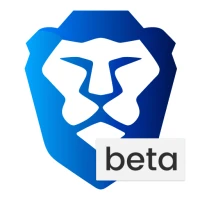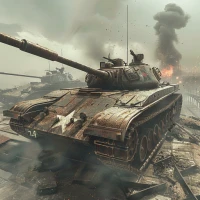
Latest Version
1.0
June 12, 2025
Build the best team
Games
iOS
104.8 MB
0
Free
Report a Problem
More About Esports Manager Run
Build a Winning Esports Team: Strategies for Success
In the competitive world of esports, assembling a formidable team is crucial for achieving victory. The right combination of skills, teamwork, and strategy can make all the difference in high-stakes matches. This article explores effective strategies for building a strong esports team that can dominate the competition.
Understanding the Importance of Team Composition
When forming an esports team, understanding the dynamics of team composition is essential. Each player brings unique skills and strengths to the table, and balancing these attributes can enhance overall performance. Consider the following roles:
- Fraggers: These players excel in eliminating opponents and securing kills. Their aggressive playstyle can shift the momentum of a match.
- Support Players: Support players provide assistance to fraggers, offering healing, utility, or strategic positioning. Their role is vital for maintaining team cohesion.
- Strategists: These players focus on game tactics and decision-making. They analyze the opposing team’s strategies and adapt accordingly.
By carefully selecting players for these roles, you can create a balanced team capable of tackling various challenges.
Identifying Top Talent: Where to Look
Finding skilled players is a critical step in building your esports team. Here are some effective methods to identify top talent:
- Online Tournaments: Participate in or observe online tournaments to scout potential players. Pay attention to their gameplay, communication skills, and teamwork.
- Ranked Matches: Monitor players in ranked matches. High-ranking players often possess the skills and experience needed for competitive play.
- Community Forums: Engage with esports communities on platforms like Discord or Reddit. These forums can be valuable resources for discovering emerging talent.
Utilizing these avenues will help you find players who not only excel individually but also fit well within a team environment.
Evaluating Player Skills and Compatibility
Once you’ve identified potential players, the next step is to evaluate their skills and compatibility with your team. Consider the following factors:
- Game Knowledge: Assess each player’s understanding of the game mechanics, strategies, and meta. A deep knowledge base is essential for making informed decisions during matches.
- Communication: Effective communication is vital in esports. Ensure that players can articulate their thoughts clearly and work collaboratively with teammates.
- Adaptability: The ability to adapt to different roles or strategies is crucial. Look for players who can adjust their playstyle based on the team’s needs.
Conducting scrimmages or practice matches can provide insights into how well players mesh with your existing team members.
Fostering Team Chemistry and Communication
Building a successful esports team goes beyond individual skills; it requires strong chemistry and communication among players. Here are some strategies to foster a positive team environment:
- Regular Practice: Schedule consistent practice sessions to help players develop synergy. This time allows them to learn each other’s playstyles and improve coordination.
- Team-Building Activities: Engage in team-building exercises outside of gaming. Activities like group outings or online games can strengthen relationships and improve teamwork.
- Open Communication: Encourage open dialogue among team members. Create a safe space for players to express their thoughts, concerns, and suggestions.
By prioritizing team chemistry, you can create a cohesive unit that works together seamlessly during matches.
Strategizing for Success: Developing Game Plans
Once your team is assembled and chemistry is established, it’s time to develop effective game strategies. Here are some key components to consider:
- Map Knowledge: Ensure that all players are familiar with the maps used in competitive play. Understanding map layouts, choke points, and strategic locations can provide a significant advantage.
- Role Assignments: Clearly define each player’s role within the team. This clarity helps players understand their responsibilities and contributes to smoother gameplay.
- Adaptability in Strategy: Be prepared to adjust your strategies based on the opposing team’s strengths and weaknesses. Flexibility can be the key to overcoming tough opponents.
Regularly reviewing past matches and analyzing performance can also help refine your strategies and improve future outcomes.
Conclusion: The Path to Esports Excellence
Building a strong esports team requires careful planning, evaluation, and ongoing development. By understanding team composition, scouting talent, fostering communication, and strategizing effectively, you can create a team poised for success. Remember, the journey to esports excellence is continuous, and adapting to the ever-evolving landscape of competitive gaming is essential. Assemble your team, make the right choices, and prepare to clash with the best in the arena!
Rate the App
User Reviews
Popular Apps










Editor's Choice































